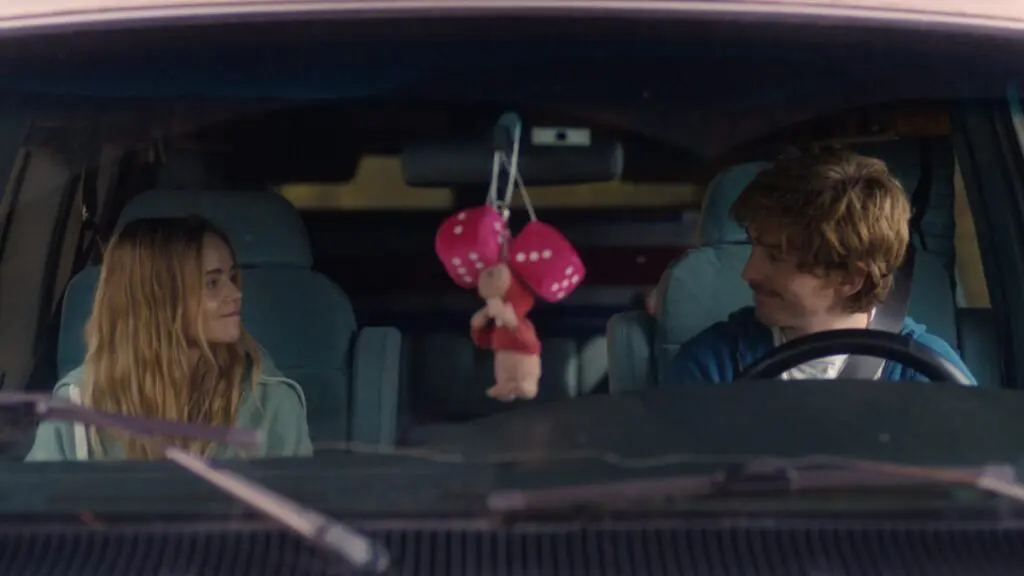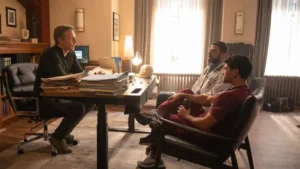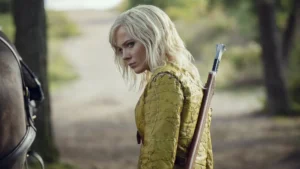Summary
Penelope is the kind of twee indie drama that gives such things a bad name, existing entirely to be one of those fancy critical darlings rather than to be a compelling or original story on its own terms.
I can see what Penelope is trying to do – or, more aptly, what it’s trying to be. The Netflix drama from Mel Eslyn and Mumblecore royalty Mark Duplass wants to be the twee indie alternative in the coming-of-age genre. It might be airing on the world’s most mainstream streaming platform, but its initial rollout at Sundance and SXSW is the giveaway. And I’m not buying it.
Since I know what Penelope would like to be, I’m happy to call out what it actually is, which is largely insufferable and utterly frictionless twaddle that is half as smart as it thinks and twice as long as it needs to be. But wait.
Megan Stott, playing essentially a 16-year-old version of Reese Witherspoon’s character in Wild, is really good in this, and that shouldn’t go unmentioned. By design, she isn’t just the show’s star but its dramatic nucleus. She’s often alone, and many stretches – some of the more insufferable – are wordless. The script – from Duplass and Eslyn, naturally – asks a lot of her. She meets it more than halfway.
That said, I hated everything else. Allow me to explain why.
Stott plays the titular Penelope, who, for reasons that remain unexplained throughout and are only suggestively hinted at right in the final moments, purchases a bunch of camping supplies and disappears into a national park in the Pacific Northwest and lives off the land. There’s no particular reason for her to do this – we don’t think, anyway – and Penelope struggles to articulate her justifications. She just felt something was missing, that she was disconnected from reality and modernity, and that, in the loneliness and primitivity of the wild, she might find an explanation for it.
This is already a deeply pretentious premise if you ask me, and that’s not even half of it. On her journey, Penelope runs into various obstacles that she surmounts with ridiculous maker-nerd gusto and meets a procession of animals and people played by quite high-profile guest stars who all have a lesson to impart or a moral issue to discuss.
It’s like the entire point of a survival drama has been missed here. Penelope is supposed to have zero skills and be relying on a Wilderness Survival Guide that she picks up at random, but pretty soon she’s making elaborate shelters and whipping up meals with freshly caught fish like Bear Grylls. She can’t walk for five minutes in any direction without running into some kindly soul who gifts her an essential piece of equipment or some sage wisdom. After the first couple of times, I thought, naively, that she was getting lucky. But it never stops happening.
This isn’t a question of “realism” by the way. Penelope exists in a cozy magical-realism fantasy land where such things are perfectly plausible, which is fine. But it is a question of drama, since if everyone Penelope meets is lovely, and every problem she runs into is easily solved, where is that drama coming from?

Penelope | Image via Netflix
This is a show in which a wild bear sniffing around essentially domesticates itself for Penelope’s benefit. It’s a show where she meets an insufferably ironic off-the-grid musician (Austin Abrams) and spends the night in his van, where he sleeps peacefully next to her and drops her off on the road the next day. It’s a show where an older environmental activist (Krisha Fairchild) teaches Penelope about tree-hugging, and where the three young men who happen upon her in the woods turn out to be harmless Catholic virgins grappling with their faith, one of whom – played by Rhenzy Feliz, late of Marvel’s Runaways and playing a much more interesting role in HBO’s The Penguin) – falls in love with her instantly.
If you were to design a show in a lab with the specific and sole purpose of annoying me, it’d look like this. Sanitizing reality in this way is fine if there’s an underlying point to be made, but outside of very broad ideas like preserving the environment and social media rotting the brains of our disconnected youth, it doesn’t have one. Penelope isn’t a stand-in for an idea or a theme. She’s an ostensibly normal kid who never reveals enough about her backstory or motivations or personality to justify all these deeply abnormal things happening to her.
The show’s desire to have its cake and eat it in this way is a hindrance it never recovers from. Penelope is never fleshed out, and her journey of self-discovery never becomes interesting because it’s clearly happening for no reason other than to justify her being the protagonist of an indie drama series. It reeks of inauthenticity on every level, and yet expects – nay, demands – to be taken seriously as an authentic exploration of teenage ennui.
Sorry. Not having it.
And the extent to which Penelope overestimates an average audience’s interest in all this is astounding. Of the eight episodes, all of which run 30 minutes or less, several are spent watching Penelope do nothing except start a fire or build a shelter. The cinematography is very lush, the score is lovely, and Stott is great, but I still found myself wishing the bear would eat her.
Mileage may vary, of course. Many may enjoy this, and fair play to them. I’m happy to concede that I’m not the target audience for a quirky indie survivalist tween drama, but I’m willing to bet that a good chunk who sit through this to the end come away with the same “What, that’s it?” question as I did.
RELATED:
- Penelope Ending Explained: A Theory About The Last-Second Twist




